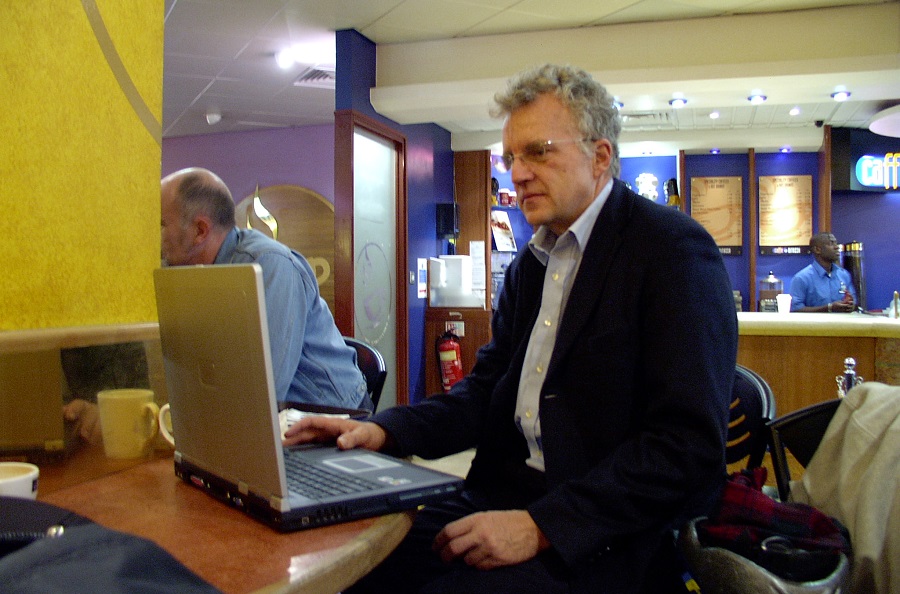Oddly, in this short newsletter, I am going to promote someone else’s book. This is because I think Peter Walker’s The Miracle Pill should be on the desk of every politician, medical practitioner and teacher. The pill, of course, is not a little capsule of chemicals but rather something rather different: exercise.
In fact, Walker’s concise manifesto to make the nation healthier, longer–lived and, as a by product, wealthier, is full of irrefutable evidence about the importance of exercise. But, and this is a crucial point, this does not mean ‘exercise’ in terms of going to the gym or running.
Walker’s thoroughly researched thesis is that the modern world has made it all too easy for people not to move much. Whether it is replacing walking or cycling with a car, hand washing clothes with an washing machine, digging holes with a bulldozer or doing the dishes with a dishwasher, all the conveniences of modern life have combined to make us move less. The replacement of millions of labouring or blue collar jobs with IT or white collar jobs means that far fewer people get their exercise through their work.
It is, therefore, not so much the failure to go to the gym or to play sports, but the way that exercise or simple movement is no longer built into our daily lives. Therefore we have to make an effort to ensure that we do move enough, and a large proportion of the population fail to do so. The extent that we fail to do so is quite extraordinary. Half of middle aged people in the UK do not walk continuously for a ten minute period in a month. Over a third of those aged over 50 cannot walk for ten minutes without stopping for breath. The depressing statistics are endless and so are the impacts in terms of disease and disability. Use it or lose it is the message. The list of diseases which exercise helps prevent is almost as long as a medical dictionary – from cardiac attacks to cancer, diabetes to depression, as it is very much an aid to mental well-being as well.
And the key point is that the benefits of moving start straight away. The notion that it is useless unless one gets out of breath or does at least 150 minutes per week is nonsense. Of course, more vigorous exercise is better and likely to contribute more to improved well being but every minute of movement does you good and vice versa.
This is important to me both personally and professionally. I have become something of an exercise addict. While I had been a cycling commuter most of my life, I took up running in my early fifties and have jogged three times per week since then, increasing to five in the recent pandemic as tennis is banned and cycling constrained. It has been a life changing experience and I have as much energy as I did when I started and moreover I can enjoy eating pretty much whatever I want without putting on weight. I can’t wait for Parkruns to start up again.
Professionally, too, the idea of exercise fits into my political outlook. Of course I would support sustainable forms of transport anyway but the fact that they are healthier and make people feel better is an important part of the argument.
Yet, despite the all too obvious benefits, scientists largely ignored the evidence for a long time, even suggesting that a sedentary life (‘I prescribe bed rest’) was best. Politicians have failed to take up the issue even though, as Walker suggests, exercise is a miracle pill which would save the NHS billions as it would reduce the years of people living with congenital diseases. There is no downside apart from the fact it is rather unexciting as it is not a matter of holding the Olympics with all its ribbon cutting but, rather, a whole lot of mundane community work and low-cost initiatives.
Enabling kids to cycle to school and making them run a mile before starting to study would probably do more for their wellbeing and exam results than anything else, but it would take a brave education minister to push such policies through. Get Britain Moving would be a better slogan than Get Brexit done but possibly harder to sell.
So even if you do not buy the book, take heed and follow the tips in it such as ensuring you walk up the stairs and not the lift, get up every 45 minutes when working at your desk and leave the car parked as often as possible.
By the way, my latest book, Cathedrals of Steam, has now sold over 10,000 copies and is still going strong. I have just received my fourth batch of copies so if you want a signed copy for a mere £18 rather than £25, email me Christian.wolmar@gmail.com. I also have my new edition of Subterranean Railway for £8.
New on the site is a Rail column here on how to recreate a new rail organisation, my Times piece on rail fares here, my letter to the New Statesman on driverless cars here and a Rail column on the need for railways to adapt to survive here.
Let’s hope that by the time I write the next newsletter, we may start to being released from our house arrest. Can’t wait but I have managed not to mention Covid-19 in this piece./
